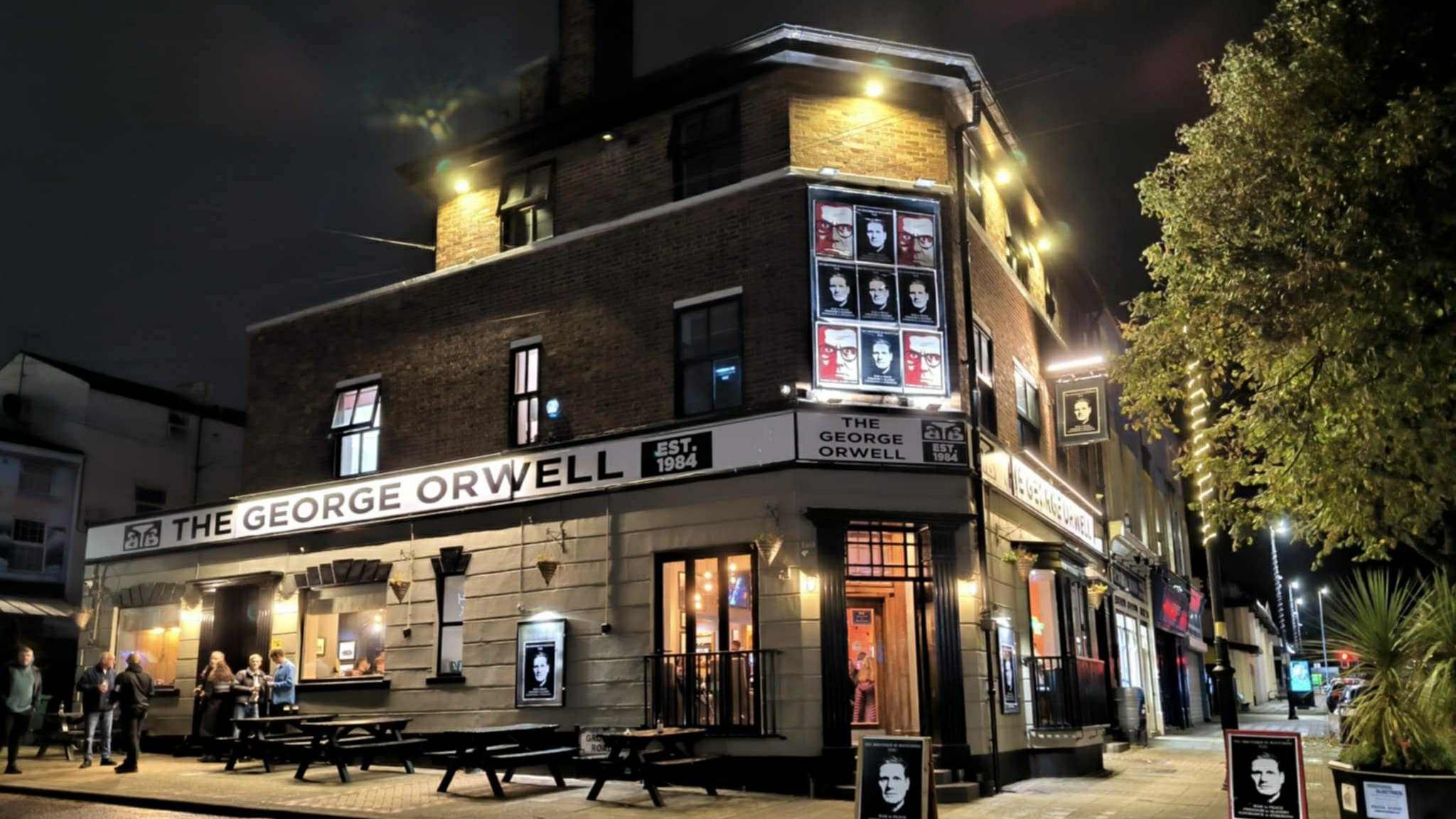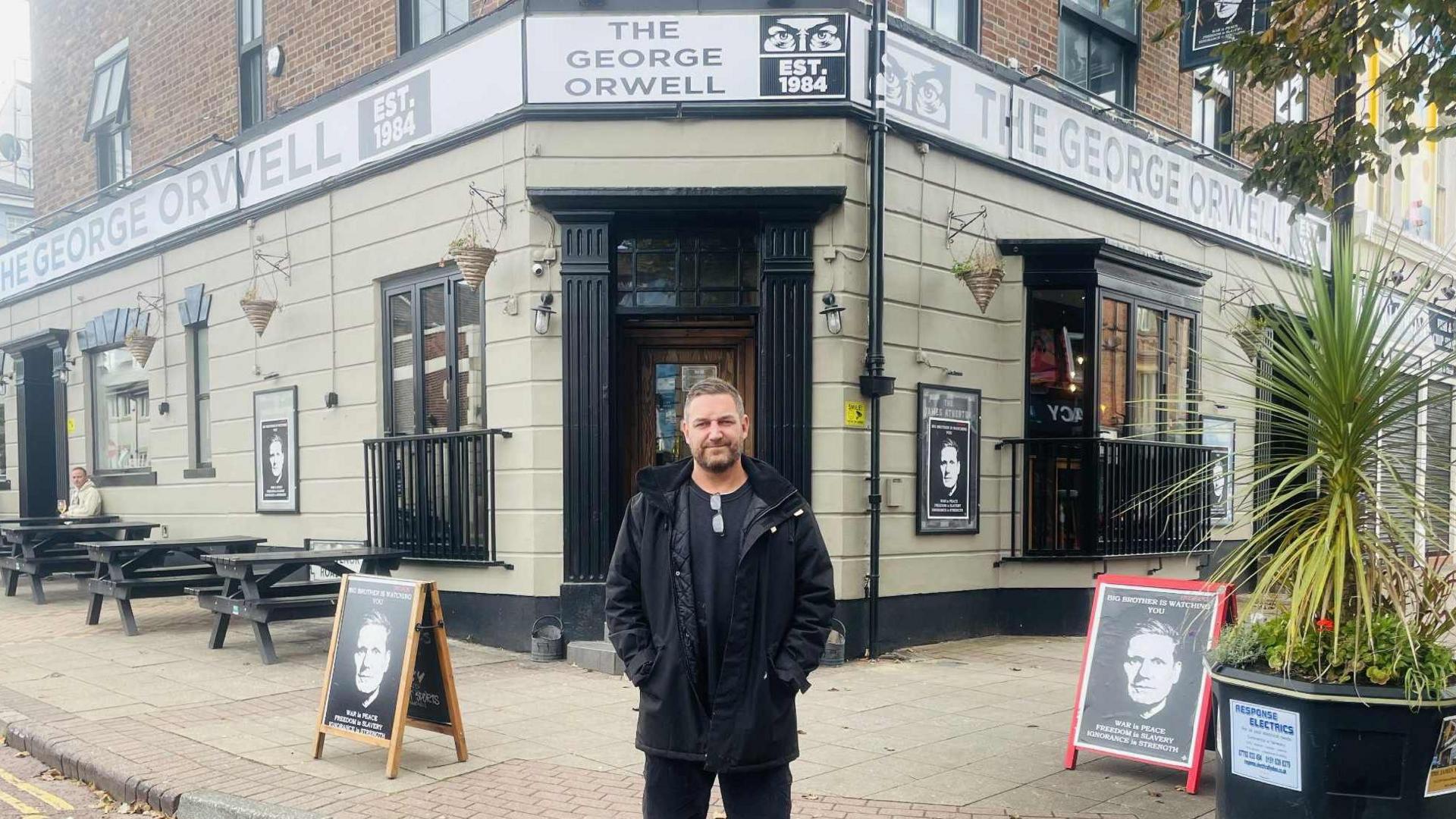Pub renamed The George Orwell in digital ID protest

The James Atherton in New Brighton, Wallasey has a history of politically inspired rebrands
- Published
A Wallasey pub has changed its name in protest at the government's introduction of digital ID cards for all UK citizens.
The James Atherton has rebranded to The George Orwell in a playful nod to the author's novel Nineteen Eighty-Four, about life in a totalitarian state where "Big Brother is watching you".
Daniel Davies, the man behind the rebrand and regeneration of New Brighton's Victoria Quarter told BBC Radio Merseyside the name change was intended to spark debate about civil liberties.
The pub made international headlines in 2021 for a risqué rebrand poking fun at the Conservative government's Coronavirus lockdown restrictions.

Daniel Davies said he wanted to encourage debate about civil liberties
Davies said: "We can all think of administrations and regimes and things that in the wrong hands, it is very Orwellian.
"This is about waking people up, we don't want a future where every part of our lives is monitored and controlled.
"That's not freedom: that's Orwellian."
But Mr Davies said the fact that he could name the pub in such a way without fear of reprisal was at least some endorsement of the right to free speech in the UK, adding: "There are some countries where, if I'd done this, I might have mysteriously fallen out of a window by now."
The rebrand came as the Labour Party Conference was held in Liverpool.
Ahead of the conference, Prime Minister Sir Keir Starmer announced the roll-out of digital ID cards, arguing it could "make our borders more secure".
Critics claimed the plan was an encroachment on civil liberties and would do nothing to deal with people or remaining in the country illegally.
Mr Davies said he was concerned whatever IT infrastructure was behind the system could be susceptible to hacking or put people at further risk of identity fraud.
Get in touch
Tell us which stories we should cover on Merseyside
Listen to the best of BBC Radio Merseyside on Sounds and follow BBC Merseyside on Facebook, external, X, external, and Instagram, external. You can also send story ideas via Whatsapp to 0808 100 2230.